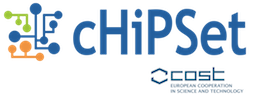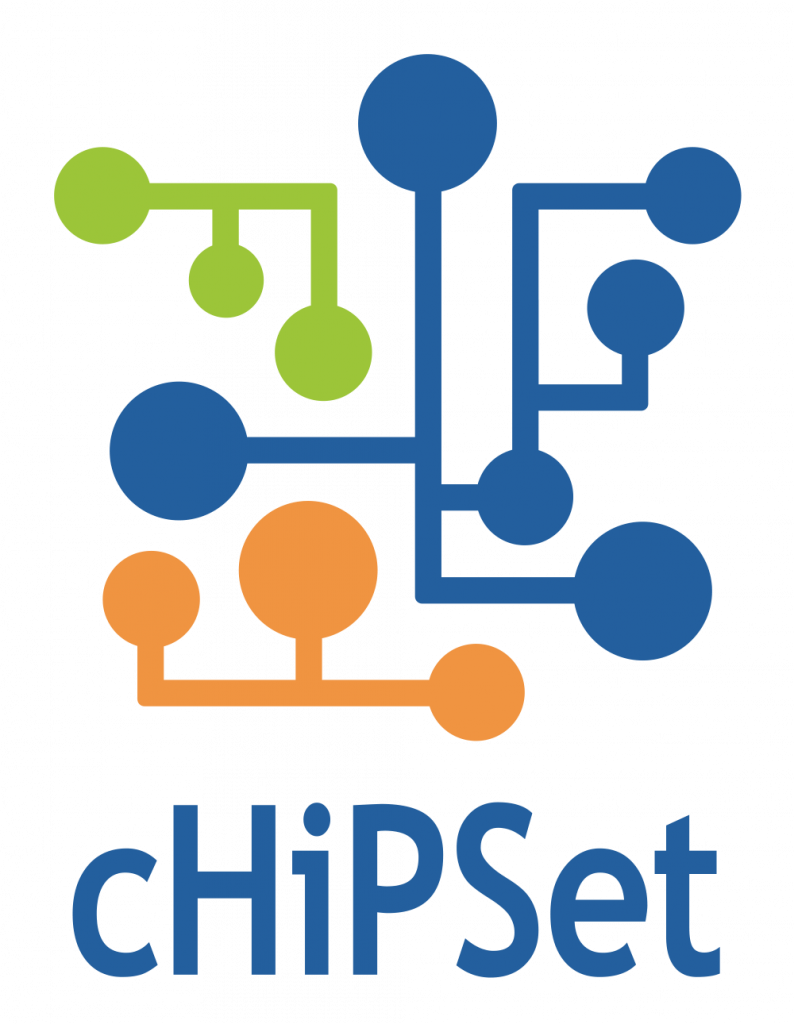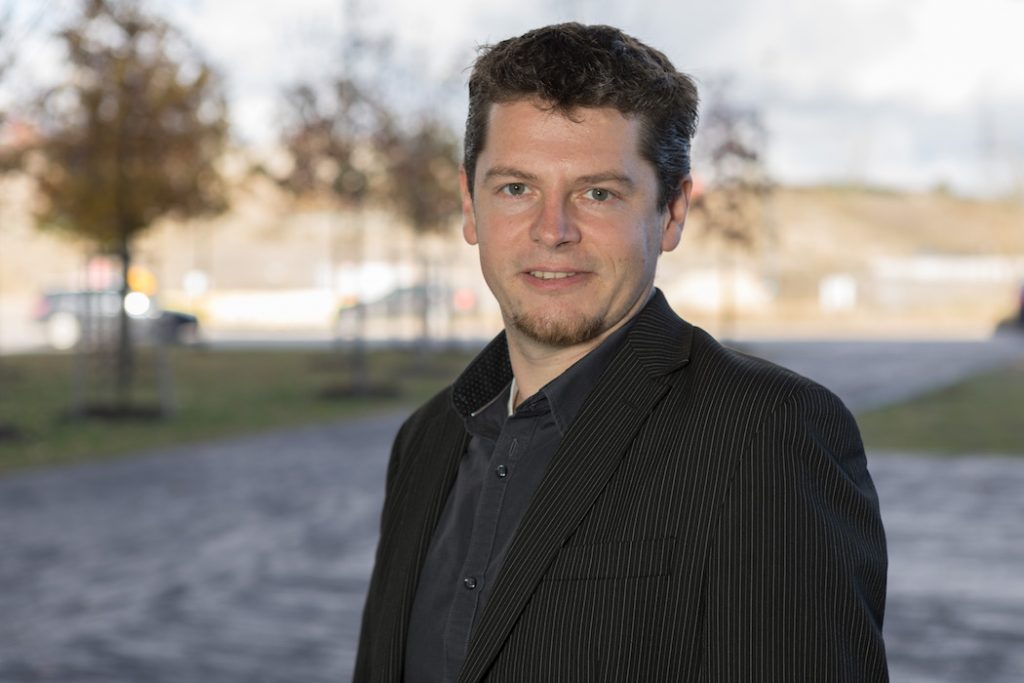cHiPSet Workshop organized as a part of the Action WG meeting
19 March 2018, Fontainebleau, France
Workshop Topics
Modelling and simulation in science have become increasingly complex and more demanding for computational and data resources. While some models have hundreds of constraints, some simulations continually generate terabytes and even petabytes of data. As both become more data intensive, storing, computing, analysing, and visualising their associated large data sets have become a major challenge. Consequently, data-intensive modelling and simulation are widely considered key in scientific discovery.
The aim of this workshop is to provide a dynamic forum for cHiPSet Action members and distinguished guests to openly discuss novel perspectives and topics of interests for the Modelling & Simulation and HPC communities including:
– novel modelling languages and techniques
– matrix, tensor, probabilistic and statistical methods for big data simulation
– spatially explicit simulation
– algorithms and methods for data-driven parallel or distributed simulation
– simulation-based decision-making and analytics.
– dynamic data-driven complex systems
– case studies on healthcare, biological data, recommender systems, computational advertising, multimedia, finance, bioinformatics, telecommunications
The session should enable collaborative connection among attendees with similar interests.
AGENDA
| Presenter(s) | ||
| 14:30
|
Welcome from the Action Chairs
|
Action Chair: Joanna Kolodziej |
| 14:45 | Presentations of the Case Studies | CS Coordinators |
| 15:45
|
Presentations of the invited speakers | Invited speakers |
| Towards Unification of HPC and Big Data Paradigms | Jesus Carretero | |
| Next Generation Computing and Storage at Scale: Overview and Implementation within the European HPC strategy | Sebastien Varrette | |
| Industrial Data Analytics and Data-driven Model Building– Practical Challenges and Opportunities | Benedikt Schmidt | |
| Simulating energy-proportional Optical Communication Infrastructures: a new perspective in modeling and analysis |
Francesco Palmieri | |
| Enhanced Living Environment and Big Data | Rossitza Goleva | |
| 17:30
|
Coffee Break
|
|
| 18:00
|
Panel Discussion | Moderator: Horacio Gonzalez-Velez |
| 19:15 | Closing | Joanna Kolodziej |
| 20:00
|
Dinner
|
Invited Speakers
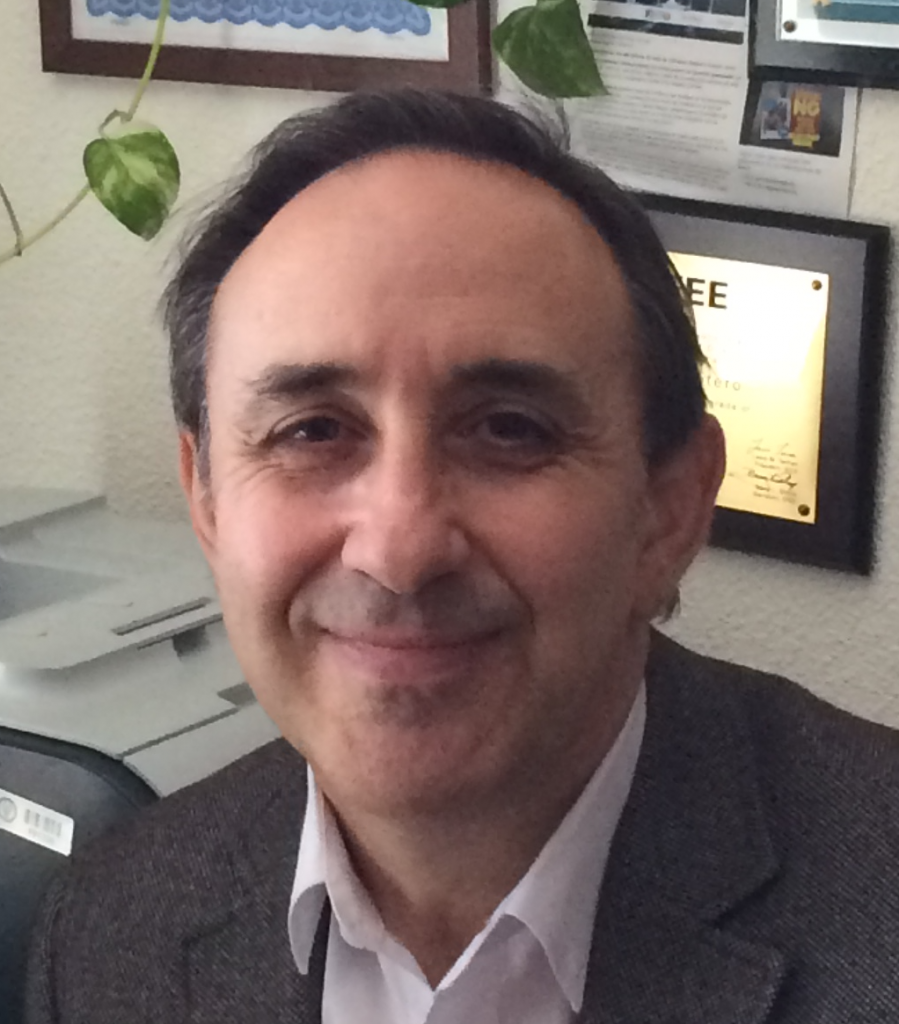 Jesus Carretero
Jesus Carretero
Title: Towards Unification of HPC and Big Data Paradigms
Abstract: The global information technology ecosystem is currently in transition to a new generation of applications requiring intensive data acquisition, processing and storage systems. As a result of this shift towards data-intensive computing, there is a growing overlap between high-performance computing (HPC) and Big Data in applications, given that many HPC applications produce Big Data, while Big Data is a growing consumer of HPC capabilities. The potential interoperability and scaling convergence of HPC and Big Data ecosystems is crucial to the future, and unification is essential to address a spectrum of major research domains, such as simulation and scientific computing. In this talk, I will show some of the research activities being made in Group ARCOS form University Carlos III of Madrid to facilitate this convergence.
Jesus Carretero is a Full Professor of Computer Architecture and Technology at Universidad Carlos III de Madrid (Spain), where he is responsible for that knowledge area since 2000 and leader of the Computer Architecture Research Group (ARCOS). His research activity is centered on high-performance computing systems, large-scale distributed systems, data-intensive computing, IoT and real-time systems. He is Action Chair of the IC1305 COST Action “Network for Sustainable Ultrascale Computing Systems (NESUS)”. He has participated and leaded several national and international research projects in these areas, founded by Madrid Regional Government, Spanish Education Ministry and the European union. He has published more than 180 papers in journals and international conferences, editor of several books of proceedings, and guest editor for special issues of journals as Intenational Journal of Parallel Processing, Cluster Computing, Computers and Electrical Engineering, and New Generation Computing, and he is coauthor of several text books related to Operationg Systems and Computer Architecture. He has participated in many conference organization committees, and he has been General chair of HPCC2011, MUE2012, ICA3PP2016 and CGRID 2017, and Program Chair of ISPA 2012, EuroMPI 2013, C4Bio 2014, and ESAA 2014 and CGRID 2017. Prof. Carretero is a senior member of the IEEE Computer Society and member of the ACM.
| Files for download |
Sebastien Varrette
Title: Next Generation Computing and Storage at Scale: Overview and Implementation within the European HPC strategy
Abstract: Accelerating modelling and simulation in the data deluge era requires the appropriate hardware and infrastructure at scale. In this talk, the modern and next-generation computing, storage and communication modular technologies permitting to tackle these challenges will be reviewed.
More importantly, the European HPC strategy and its implementation will be presented. It comes in the context of a global race recognized as a strategic priority within many other countries around the world (China, USA, Japan, Russia, Brazil and India, among others) for which Europe is taking up the challenge through the recent EuroHPC initiative. Updates on this project will also be given.
Sébastien Varrette obtained his joint Ph.D. degree with great distinction in Computer Sciences between the University of Luxembourg (UL) and the University of Grenoble (INPG, France) in 2007. Afterwards, he joined Prof. Pascal Bouvry within the Parallel Computing and Optimization Group (PCOG) at the University of Luxembourg as Research Scientist, where he is leading the development of the University’s HPC platform, as well as the associated expert team of system administrators managing and supporting it.
His main research interests lie in the domains of the security and performance of parallel and distributed computing platforms, such as HPC or Cloud Computing infrastructures.
Dr Varrette is active as general chair, track chair or as scientific committee member for various reference conferences and technical workgroups within his area of expertise (IEEE CloudCom, CloudNet, IPDPS, Europar, Big Data Congress, Optim, PCGrid, ICPADS, HPCS, CLUS, J. Supercomputing etc.). He takes part for the management committee and represents Luxembourg within multiple EU projects, such as PRACE (acting advisor), ETP4HPC or several COST actions (for instance IC1305 NESUS: Network for Sustainable Ultrascale Computing). He’s also one of the national ICT standardization delegate within ISO/TC 307: Blockchain and distributed ledger technologies.
Up to now, Dr. Varrette co-authored four books and more than nine book chapters in Computer Science. He also wrote about 80 research or popularization articles in scientific journals, or international conference proceedings.
| Files for download |
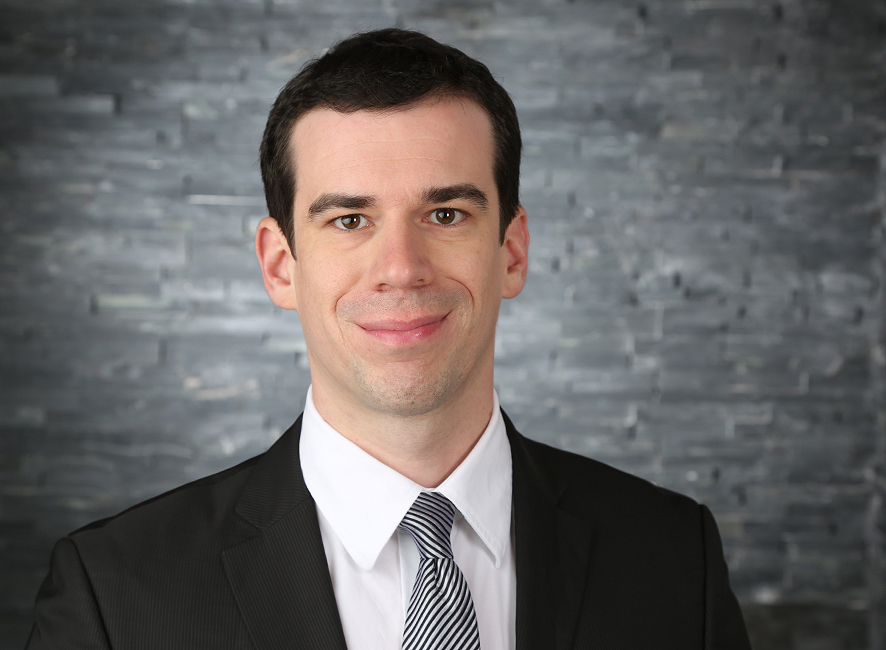 Benedikt Schmidt
Benedikt Schmidt
Title: Industrial Data Analytics and Data-driven Model Building– Practical Challenges and Opportunities
Abstract: State and condition identification for industrial facilities and equipment increasingly relies on data-driven model generation using machine learning. Example domains are predictive maintenance and process monitoring. This focus on data-driven model generation is stimulated by recent breakthroughs in machine learning – especially deep learning – due to the availability of computing capacities and data sets of required size. For field data, a specific benefit is that environmental effects on the subject of investigation is latent in the data and find their way into the model, while they might be neglected if other modeling approaches are used. Yet, when decision towards a modeling technique is made various trade-offs need to be considered, especially in the domain of data collection, model building, deployment and maintenance. The talk investigates practical challenges and opportunities for data-driven model building and its relation to high-performance computing. Examples from predictive maintenance and monitoring of industrial processes are given.
Benedikt Schmidt works as a Senior Scientist in the Industrial Data Analytics group for the ABB AG. His work focuses on prediction models for industry assets, IT infrastructures and frameworks for Big Data processing. Before this, Benedikt was a postdoctoral researcher at Technische Universität Darmstadt in the Telecooperation group of Prof. Mühlhäuser, leading the research group Smart Personal Assistance. Benedikt worked for SAP SE while pursuing a PhD and was involved in a variety of national / international research projects. In summer 2013 he was visiting researcher at Xerox PARC in Palo Alto.
| Files for download |
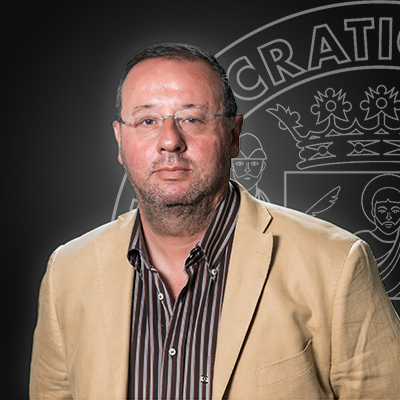 Francesco Palmieri
Francesco Palmieri
Title: Simulating energy-proportional Optical Communication Infrastructures: a new perspective in modeling and analysis
Abstract: Despite the significant degree of technological maturity reached by modern telecommunications infrastructures, enabling the movement of the huge data volumes between distant sites characterizing current applications, new critical issues are emerging as side effects associated to their energy consumption, environmental impact and related costs, now accounting for an important part of the networks’ operational expenditures. For this reason, the power consumption of telecommunication networks has recently attracted the attention of both researchers and field experts in order to contain the associated energy bills and reduce their ecological impact. However, due to their costs and complexities such infrastructures cannot be easily used in performance evaluations and assessment. Hence, the main goal of this presentation is illustrating the current progress of the research group in the simulation of next generation energy-proportional communication infrastructures by exploring the models used to formally characterize the energy consumption within optical backbone networks in order to develop new energy-aware protocols, architectures, techniques and paradigms that, by considering power usage as a new constraint, are capable to optimize the use of energy and reduce the ecological footprint in order to achieve more sustainable large scale communication infrastructures that will be a basis for growth and prosperity.
Francesco Palmieri is an associate professor at the University of Salerno, Italy. He is habilitated as a full professor in both Computer Science and Computer Engineering. He received from the same university two Italian “Laurea” degrees and a PhD in computer science. His major research interests concern high performance computing/networking protocols and architectures, routing algorithms and network security. Previously he has been an assistant professor at the Second University of Naples, and the Director of the telecommunication and networking division of the Federico II University, in Naples, Italy. At the start of his career, he also worked for several international companies on networking-related projects. He has been closely involved with the development of the Internet in Italy as a senior member of the Technical-Scientific Advisory Committee and of the CSIRT of the Italian NREN GARR. He was a visiting scholar in several universities in Europe and Asia. As one of the best book editors Australia had, he has published a large number of papers in leading technical journals, books and conferences and currently serves as the editor-in-chief of an international journal (i.e., Journal of High Speed networks) and is part of the editorial board or associate editor of several other well reputed ones (i.e., IEEE Transactions on Dependable and Secure Computing, Information Sciences, Future generation Computer Systems, Applied Soft Computing, Soft Computing, Future Internet).
| Files for download |
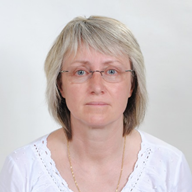 Rossitza Goleva
Rossitza Goleva
Abstract: Recent vast development of the IoT technologies towards Enhanced Living Environment (ELE) including smart cities, agriculture, industry, health, utilities management leads to the generation of the huge amount of fragmented and also related data. The necessity of big data storage capacity, data acquisition, analysis, distribution, security and transparency is becoming more and more important. Smart dust, dew, fog, cloud computing technologies as well as blockchain are aiming to solve these problems and allow generation of the micro and macro services based on the live and historical big data. The process will allow better monitoring and management of the critical resources from one side and decision-making information support related to the living environment from the other side. Multiple IoT architectures and platforms are proposed by different standardization organizations like ETSI, ITU-T, AIOTI. There are still multiple unsolved problems in data sharing, security, local legislation, scalability etc. In this talk, I will demonstrate the main outputs from the IC1303 COST Action AAPELE (Algorithms, Architectures and Platforms for Enhanced Living Environments).
Rossitza Ivanova Goleva is an Assistant Professor at the Department of Informatics New Bulgarian University in Sofia, Bulgaria. She is Vice-Chair of the IC1303 COST Action AAPELE (Algorithms, Architectures and Platforms for Enhanced Living Environments). R. Goleva is dealing with design and implementation of hybrid environments, Quality of Service analysis, high performance cloud computing, traffic engineering and simulations. R. Goleva has participated in many EU funded and regional projects, including EU ECHO project ASPIRES (2017-2019) on forest fire prevention and detection, IoT based home automation, smart environmental systems etc. She has experience in teaching more than 15 different courses, had long and short scholarships in Denmark, Greece, Portugal, The Netherlands, Israel, and Germany. R. Goleva has a MSc in computer science and PhD in communication network as well as 36 years in the profession. She serves as a reviewer in European Commission research programmes, many conferences and journals. R Goleva is vice chair of IEEE Bulgaria section since 1999 leading currently also the communication chapter. She has more than 100 research papers in various conferences and journals, two edited books.
| Files for download |
Contact Information
Joanna Kolodziej – Action Chair (joanna.kolodziej68@gmail.com)
Horacio Gonzalez-Velez – Action Vice-Chair (horacio.gonzalez-velez
Registration for the non-cHiPSet participants (excl. invited guests – Limit: 20 participants)
The workshop is open also for the non-cHiPSet members. If you plan to attend it, please use the following link for the registration:
We will accept the first 20 people, so please register only if you realy plan to participate.
